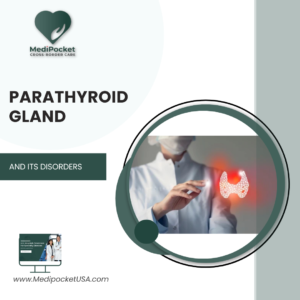What is Hormonal Therapy for Breast Cancer?
Endocrine therapy, another name for hormonal therapy, is a treatment for hormone receptor-positive breast cancer that is frequently utilized. Because estrogen and progesterone can stimulate the growth of cancer cells, these hormones can also be susceptible to this kind of breast cancer.
To slow the growth and spread of hormone receptor-positive breast cancer, hormonal therapy either lowers the body’s hormone levels or blocks the effects of progesterone or estrogen.

Hormone Therapy for Breast and Menopause?
As was previously said, the way hormone therapy for breast cancer functions is by preventing the effects of progesterone or estrogen, which can encourage the growth of HR-positive breast cancer cells. This therapy, which tries to delay or stop the proliferation of cancer cells, is an essential part of the treatment for HR-positive breast cancer.
Menopausal hormone treatment (MHT), on the other hand, uses estrogen either by itself or in conjunction with progesterone to treat menopausal symptoms like mood swings, hot flashes, and dry vagina. MHT, on the other hand, may promote the development of HR-positive breast cancer cells, hence raising the chance of cancer progression or recurrence.
Consequently, it is usually advised that a woman using MHT stop taking medication if she is diagnosed with HR-positive breast cancer to prevent the proliferation of cancer cells. This emphasizes the significance of comprehending the various impacts of menopausal hormone therapy and hormone therapy for breast cancer, as well as the necessity of customized treatment regimens catered to the unique needs of each patient.
What types of Hormone therapy are used for Breast Cancer?
- Selective Estrogen Receptor Modulators (SERMs): Medications classified as selective estrogen receptor modulators (SERMs) include tamoxifen. To stop estrogen from attaching to these receptors and promote the growth of cancer, SERMs inhibit the estrogen receptors on breast cancer cells. For premenopausal and postmenopausal women with ER-positive breast cancer, tamoxifen is usually administered.
- Aromatase Inhibitors (AIs): Postmenopausal women with hormone receptor-positive breast cancer are frequently treated with AIs, such as anastrozole, letrozole, and exemestane. These drugs function by inhibiting the enzyme aromatase, which in postmenopausal women converts androgens into estrogen. AIs aid in preventing the development of hormone receptor-positive breast cancer by lowering the body’s estrogen levels.
- Gonadotropin-Releasing Hormone (GnRH) Agonists: Estrogen production is suppressed and ovarian function is reduced in premenopausal women with hormone receptor-positive breast cancer by GnRH agonists, such as leuprolide and goserelin. For the treatment of premenopausal breast cancer, these drugs are frequently combined with chemotherapy or other hormone therapies.
- Selective Estrogen Receptor Degraders (SERDs): To lower the amount of estrogen receptors in breast cancer cells, SERDs—like fulvestrant—bind to these receptors and encourage their destruction. When previous hormone therapy has not been successful in treating postmenopausal women with advanced or metastatic breast cancer, fulvestrant is usually utilized.
- Estrogen Receptor Downregulators: Drugs such as tamoxifen that bind to estrogen receptors only selectively suppress the expression of these receptors and prevent estrogen-mediated signaling pathways in breast cancer cells. This contributes to the growth of hormone receptor-positive breast cancer being slowed down or stopped.
Treatment for advanced or metastatic Breast Cancer
- Hormone-Receptive Metastatic or Recurrent Breast Cancer: Hormone therapy is frequently the main course of treatment for individuals with hormone-positive metastatic or recurrent breast cancer. To prevent the effects of estrogen, doctors may prescribe drugs like aromatase inhibitors (AIs) or selective estrogen receptor modulators (SERMs), like tamoxifen, to help stop the proliferation of cancer cells.
- Locoregional Recurrence: Hormone therapy may be suggested as a component of the treatment plan in instances where ER-positive breast cancer recurs locally in the breast, chest wall, or adjacent lymph nodes following first treatment. This may slow the spread of the cancer and aid in its management.
- Combination Therapies: To enhance results for patients with advanced or metastatic breast cancer, hormone therapy may occasionally be used in conjunction with other treatments including chemotherapy or targeted therapies. By targeting cancer cells via a variety of channels and mechanisms, this strategy seeks to increase the efficacy of treatment.
- Monitoring and Modifications: Individuals with metastatic or advanced breast cancer undergoing hormone therapy usually have frequent monitoring to evaluate the effectiveness of their treatment and handle any side effects. The demands of each patient are unique, and treatment approaches might be modified as the disease progresses.
- Palliative Care: In cases where advanced or metastatic breast cancer cannot be cured, hormone therapy may still play a valuable role in providing palliative care. By controlling the growth of cancer cells and alleviating symptoms, hormone therapy can help improve the quality of life and prolong survival in some patients.
Hormonal Therapy for Breast Cancer in the USA
In the United States, advanced hormonal therapy is vibrant and fast-changing due to continuous research, innovation, and cooperation between medical professionals, researchers, and pharmaceutical businesses. Clinical professionals work to enhance the quality of life and maximize outcomes for patients with HR-positive breast cancer by utilizing the most recent developments in science and treatment techniques.
Contact MediPocket USA to get Advanced Treatment for Breast Cancer from the top hospitals in the United States.









